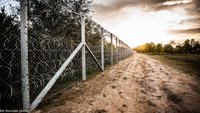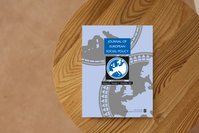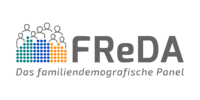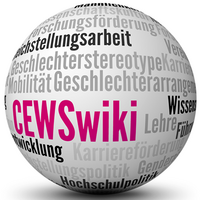Liebe Leser*innen, wir wünschen Ihnen ein friedliches Weihnachtsfest, besinnliche Feiertage und einen guten Rutsch ins Jahr 2022! Bleiben Sie gesund! Ihre Redaktion |  | Dear readers, we wish you a peaceful Christmas, reflective holidays and a happy new year 2022! Stay healthy! Your editorial team |
GESIS Spring Seminar 2022: “Simulation Techniques in the Social Sciences” – Registration is open! From 07 - 25 March 2022, the 2nd Virtual GESIS Spring Seminar offers three online classes on different simulation techniques used in the social sciences. The lectures in each course are complemented by extensive hands-on exercises and tutorials with applications to both simulated and real-world data. All courses are held in English. Week 1 (07 - 11 March): Agent-based Modeling Prof. Dr. Andreas Flache; Carlos de Matos Fernandes; Tanzhe Tang Week 2 (14 - 18 March): Policy Modeling Prof. Dr. Petra Ahrweiler; Dr. Corinna Elsenbroich Week 3 (21 - 25 March): Using Simulation Studies to Evaluate Statistical Methods Dr. Tim P. Morris; Dr. Matteo Quartagno Courses will be held online (via Zoom) and must be booked separately – whether you wish to attend one, two, or all of them. There is no registration deadline, but places are limited and allocated on a first-come, first-served basis. Thanks to our cooperation with the Cologne Graduate School in Management, Economics and Social Sciences at the University of Cologne, enrolled doctoral students can obtain three ECTS credit points per one-week course. For registration and detailed course descriptions, please visit www.gesis.org/springseminar | GESIS Training Online
Workshops 16-18/02/2022
Applied Multiple Imputation 21-22/02/2022
Automatic Sampling and Analysis of YouTube Data 28/02-01/03/2022
Grounded Theory Methodology 07/03-09/03/2022
Fragebogenentwicklung und -pretesting 15/03-18/03/2022
Einführung in die logistische Regression |
 | Neuer Blog-Beitrag: Riebe, Hetzer und Wenker verabschieden Angela Merkel und schauen auf die deutschen Wähler:innen im Datencheck Es waren ereignis- und krisenreiche Amtsjahre, in denen Angela Merkel von 2005 bis 2021 Bundeskanzlerin der Bundesrepublik Deutschland war: die Finanz‑/Eurokrise, die „Flüchtlingskrise“, die Klimakrise und zuletzt die Corona-Pandemie. Zeiten der Krise gehen oft mit Wandel einher. Doch wie spiegelt sich dieser Wandel in den Einstellungen der deutschen Bevölkerung zu den wichtigsten gesellschaftlichen Themen wider? Wie wurden Angela Merkel und die Bundesregierung im Verlauf der Jahre wahrgenommen? Und wie hat sich der Wunsch nach einer Ampel-Koalition in den letzten 16 Jahren verändert? DOI: 10.34879/gesisblog.2021.55
New blog post: Riebe, Hetzer and Wenker bid farewell to Angela Merkel and shed light on the opinion of German voters in a data check These were eventful and crisis-ridden years in office during which Angela Merkel was Chancellor of the Federal Republic of Germany from 2005 to 2021: the financial/euro crisis, the "refugee crisis," the climate crisis and, most recently, the Corona pandemic. Times of crisis are often accompanied by change. But how is this change reflected in the attitudes of the German population toward the most important social issues? How have Angela Merkel and the German government been perceived over the years? And how has the desire for a traffic light coalition changed over the past 16 years? DOI: 10.34879/gesisblog.2021.55 |
 | Alles easy? GESIS startet neues Transfer-Journal "easy_social_sciences" Menschen sind Teil sozialer Netzwerke. Ihre Identifikationen, Meinungen und Verhaltensweisen werden davon beeinflusst, wen sie kennen und wie die Personen, die sie kennen, miteinander verbunden sind. Dem spannenden Thema der Erforschung dieser sozialen Netzwerke widmet sich die erste Ausgabe des neuen Transfer-Journals easy_social_sciences. Mehr lesen...
Everything easy? GESIS launches new transfer journal "easy_social_sciences" People are part of social networks. Their identifications, opinions and behaviors are influenced by who they know and how the people they know are connected. The first issue of the new transfer journal easy_social_sciences is dedicated to the exciting topic of researching these social networks. Read more... |
 | Neue Skala zur Erfassung des kompetenzbezogenen IKT Selbstkonzeptes (ICT-SC25) in ZIS verfügbar! Die ICT-SC25 ist eine Skala bestehend aus 25 Items zur ökonomischen (Bearbeitungszeit < 1 min pro Skala) Erfassung des kompetenzbezogenen Selbstkonzepts (SC) im Zusammenhang mit der Nutzung von Informations- und Kommunikationstechnologie (IKT), die Deutsch (ICT-SC25g) und Englisch (ICT-SC25e) vorliegt. Der ICT-SC25g/e misst das allgemeine und domänenspezifische ICT-SC (kommunizieren, verarbeiten und speichern, Inhalte generieren, sicher anwenden und Probleme lösen) in der erwachsenen Bevölkerung (18-69 Jahre) in verschiedenen Kontexten (Privatleben, Arbeit und Bildung). Schauffel, N., Schmidt, I., Peiffer, H., & Ellwart, T. (2021). ICT Self-Concept Scale (ICT-SC25). Zusammenstellung sozialwissenschaftlicher Items und Skalen (ZIS). https://doi.org/10.6102/zis308_exz
The ICT Self-Concept Scale (ICT-SC25) is now available in ZIS! The ICT-SC25 is a 25-item scale to economically (processing time < 1 min per scale) assess competence self-concept (SC) related to the use of information and communication technology (ICT) available in the two languages German (ICT-SC25g) and English (ICT-SC25e). The ICT-SC25g/e measures general and domain-specific ICT-SC (communicate, process and store, generate content, safe application, and solve problems) in the adult population (18-69 years) across contexts (private life, work, and education). Schauffel, N., Schmidt, I., Peiffer, H., & Ellwart, T. (2021). ICT Self-Concept Scale (ICT-SC25). Zusammenstellung sozialwissenschaftlicher Items und Skalen (ZIS). https://doi.org/10.6102/zis308_exz |
 | Neu: HSR 46.4 (Open Access) - Caring in Times of a Global Pandemic / Vaccination and Society HSR Forum – Caring in Times of a Global Pandemic. (Emma Dowling, Ayse Dursn, Syntia Hasenöhrl, Verena Kettner & Birgit Sauer) Dieses HSR-Forum untersucht die Auswirkungen der COVID-19-Pandemie und die Maßnahmen zu ihrer Eindämmung in einer länderübergreifenden Perspektive im Hinblick auf die Bereiche Pflege, soziale Reproduktion und affektive Sicherheitspolitik. Mehr lesen...
New: HSR 46.4 (Open Access) - Caring in Times of a Global Pandemic / Vaccination and Society HSR Forum – Caring in Times of a Global Pandemic. (Emma Dowling, Ayse Dursn, Syntia Hasenöhrl, Verena Kettner & Birgit Sauer) This HSR Forum investigates the impact of the COVID-19 pandemic and the measures to contain it in a cross-national perspective with regard to the areas of care, social reproduction, and affective security policies. Read more... |
 | Neuer Blog-Beitrag: Dr. Fabian Gülzau schreibt über Grenzen und Grenzkontrollen, die trotz Globalisierung allgegenwärtig sind Territoriale Grenzen und Grenzkontrollen stehen wieder auf der politischen Tagesordnung. Die Globalisierung hat nicht zu einer Welt ohne Grenzen geführt. Im Gegenteil, die Staaten haben die Grenzfunktion durch die Verstärkung der Grenzen, die Externalisierung der Grenzkontrolle und die Einführung digitaler “intelligenter Grenzen” erweitert. Dieser Blogbeitrag gibt einen Überblick über die jüngsten Trends bei Grenzen und Grenzkontrollen. Die Sonderausgabe “Borders as Places of Control. Fixing, Shifting, and Reinventing State Borders” der Zeitschrift Historical Social Research vertieft diese Überlegungen. DOI: 10.34879/gesisblog.2021.56
New blog post: Dr. Fabian Gülzau writes about territorial borders and border control Territorial borders and border control are back on the political agenda. Globalization has not led to a world without borders. On the contrary, states have expanded the bordering function by fortifying borders, externalizing border control, and introducing digital “smart borders.” This blog post provides an overview of recent trends in borders and border control. The special issue “Borders as Places of Control. Fixing, Shifting, and Reinventing State Borders” of the journal Historical Social Research expands on these considerations. DOI: 10.34879/gesisblog.2021.56 |
 | Neue Publikation: Müller, Pforr & Hochman: Double Burden? Implications of indebtedness to general life satisfaction... Müller, Nora, Klaus Pforr, and Oshrat Hochman. 2021. "Double Burden? Implications of indebtedness to general life satisfaction following negative life events in international comparison." Journal of European Social Policy 31 (5): 614–628. doi: http://dx.doi.org/10.1177/09589287211050505. Nora Müller, Klaus Pforr und Oshrat Hochman untersuchen den Wohlstand und insbesondere die Verschuldung als Determinante der Lebenszufriedenheit. Mehr lesen...
New publication by Müller, Pforr & Hochman: Double Burden? Implications of indebtedness to general life satisfaction... Müller, Nora, Klaus Pforr, and Oshrat Hochman. 2021. "Double Burden? Implications of indebtedness to general life satisfaction following negative life events in international comparison." Journal of European Social Policy 31 (5): 614–628. doi: http://dx.doi.org/10.1177/09589287211050505. Nora Müller, Klaus Pforr and Oshrat Hochman look at wealth, and more specifically debt, as determinant of life satisfaction. Read more... |
 | Neue Publikation: Eder, Katsanidou et al.: A framework for social tipping in climate change mitigation Isabelle Stadelmann-Steffen, Christina Eder, Niklas Harring, Gabriele Spilker, Alexia Katsanidou: A framework for social tipping in climate change mitigation: What we can learn about social tipping dynamics from the chlorofluorocarbons phase-out,
Energy Research & Social Science, Volume 82, 2021,
https://doi.org/10.1016/j.erss.2021.102307 In den Naturwissenschaften ist das Konzept der "(natürlichen) Kipp-Punkte" ein heißes Thema in der Forschung zum Klimawandel geworden. Um die Möglichkeiten und Hindernisse für die grundlegenden gesellschaftlichen Veränderungen, die für die Eindämmung des Klimawandels notwendig sind, besser zu verstehen und zu bewerten, schlagen die Autor*innen einen Framework für soziale Kipppunkte vor. Mehr lesen...
New Publication: Eder, Katsanidou et al.: A framework for social tipping in climate change mitigation Isabelle Stadelmann-Steffen, Christina Eder, Niklas Harring, Gabriele Spilker, Alexia Katsanidou: A framework for social tipping in climate change mitigation: What we can learn about social tipping dynamics from the chlorofluorocarbons phase-out,
Energy Research & Social Science, Volume 82, 2021,
https://doi.org/10.1016/j.erss.2021.102307 In the natural sciences, the concept of “(natural) tipping points” has become a hot topic in climate change research. To better understand and evaluate the possibilities for and the barriers to the fundamental societal transformations necessary for climate change mitigation, the authors suggest a social tipping dynamics framework. They contrast this framework with previous accounts of stability and change and show that integrating these approaches under the umbrella of a social tipping dynamics framework provides with a more encompassing and therefore more realistic account for theorizing and empirically analyzing the different (technological, behavioral, and political) paths and related interdependencies to fundamental societal change. Read more... |
 | FReDA - Rekrutierungswelle mit sehr gutem Rücklauf Seit dem 4. November läuft die zweite Teilbefragung dieses Jahres, die Welle W1b, im neuen Erhebungsprogramm: „FReDA – Das familiendemografische Panel“. Dort werden Daten zu familiendemografischen Fragen erhoben; FReDA wird in Zukunft zu den größten drei Panelstudien in Deutschland zählen. Noch bis zum 9. Januar 2022 können die Befragten die ausgefüllten Interviews zurückschicken. Bislang ist der Rücklauf sehr gut: Nach aktuellem Stand sind schon jetzt mehr als 18.300 vollständig ausgefüllte Interviews eingegangen - und es kommen täglich weitere Fragebögen zurück. Daten stehen ab 2022 für Forschung bereit Mehr lesen...
FReDA - Recruitment wave with very good response rate Since November 4, the second partial survey of this year, wave W1b, has been running in the new survey program: "FReDA - The Family Demographic Panel". Data on family demographic questions are collected there; FReDA will be one of the largest three panel studies in Germany in the future. Respondents can still return completed interviews until January 9, 2022. So far, the response rate has been very good: as things stand, more than 18,300 fully completed interviews have already been received - and more questionnaires are coming back every day. Data available for research from 2022 Read more... |
 | Folge #5 des GESIS-Podcasts: Religiosität total vermessen! Zu Gast: Dr. Pascal Siegers Folge #5 des Podcast "Die Fakten dicke!" – Religiosität total vermessen! Konzeptspezifikation, Operationalisierung und Messung Dr. Sophie Zervos und Dr. Lydia Repke fragen den ALLBUS-Experten Dr. Pascal Siegers, wie sich soziale Phänomene in der empirischen Sozialforschung messen lassen. Mehr lesen...
Folge #5 des GESIS-Podcasts: Religiosität total vermessen! Zu Gast: Dr. Pascal Siegers Episode #5 of the podcast "Die Fakten dicke!" - Religiosity totally measured! Concept specification, operationalization and measurement Dr. Sophie Zervos and Dr. Lydia Repke ask ALLBUS expert Dr. Pascal Siegers how social phenomena can be measured in empirical social research. Can something like religiosity actually be recorded? Read more... |
 | CEWSwiki knackt die 300er Marke! Das CEWSwiki dokumentiert seit Dezember 300 laufende und abgeschlossene Forschungsprojekte zum Themenfeld Gender und Wissenschaft im deutschsprachigen Raum. In dieser Datenbank stellt das CEWS kuratierte Projekte sowohl im Bereich der Grundlagen- und der angewandten Forschung als auch der Evaluations- und Aktionsforschung bereit. Inhaltlich setzt das CEWSwiki an der Schnittstelle von Hochschul-, Wissenschafts- und Geschlechterforschung an. Zum CEWSwiki
CEWSwiki hits the 300 mark! Since December, CEWSwiki has documented 300 ongoing and completed research projects on the topic of gender and academia in German-speaking countries. In this database, CEWS provides curated projects in the field of basic research, applied research, evaluation research as well as action research. In terms of content, CEWSwiki operates at the interface of higher education research, science studies and gender studies. Go to CEWSwiki |
Folgen Sie uns/ Follow us!
|

